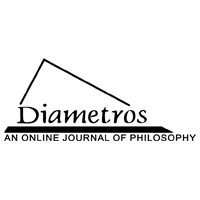Podmiot i przedmiot poznania jako efekt syntezy transcendentalnej jedności apercepcji w sformułowaniu neopragmatycznym. Stanowisko Roberta B. Brandoma
The subject and object of knowledge as a result of the synthesis of the transcendental unity of apperception. The neopragmatic reading of Robert B. Br
Author(s): Daniel ŻuromskiSubject(s): Philosophy
Published by: Wydawnictwo Uniwersytetu Jagiellońskiego
Keywords: Robert B. Brandom; Kant; neopragmatism; intentionality; subject-object model of knowledge; transcendental unity of apperception; synthesis
Summary/Abstract: One of the characteristic theses of the classical American pragmatism (in short TP) and contemporary neopragmatism (in short TNP) with regard to the question: „How do the mind and language relate to the world?” is that the concepts of the subject and object of knowledge are not primitive and autonomus. Rather, these concepts were construed by the pragmatists and the neo-pragmatists as a result of a process which, in the order of philosophical explanation, reflected e.g. in conceptual analysis or ontological reduction, was considered to be more basic. Today, one of the most original and widely discussed neopragmatists, who can reasonably be recognized as belong-ing to TNP, is an American philosopher Robert B. Brandom. What is surprising in Brandom’s theo-ry is that it is formulated against the background of a semantic-pragmatic interpretation of Kant's famous thesis about the transcendental unity of apperception. The purpose of this article is, firstly, to present Robert Brandom’s theory as a version of TNP and, secondly, to provide an interpreta-tion, according to which there is a reason to describe Brandom’s neopragmatism as transcendental-ism.
Journal: Diametros
- Issue Year: 2013
- Issue No: 37
- Page Range: 169-192
- Page Count: 24
- Language: Polish

